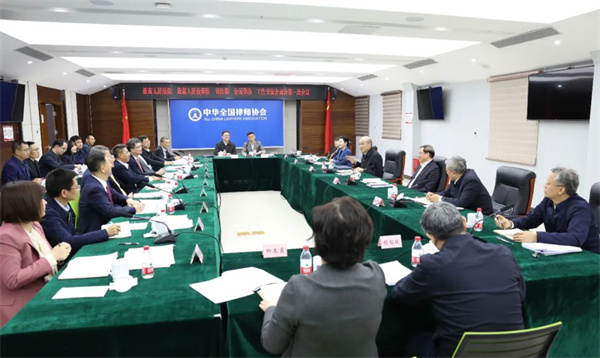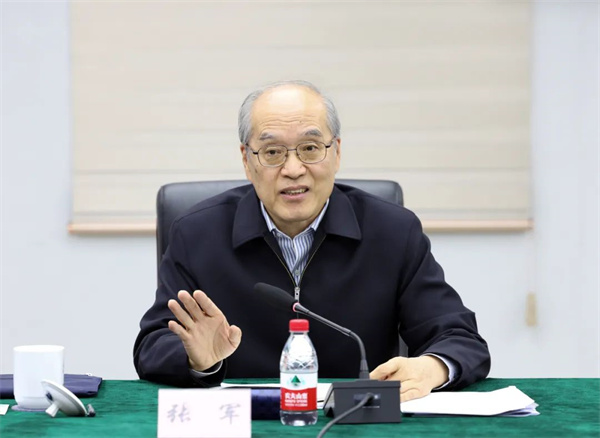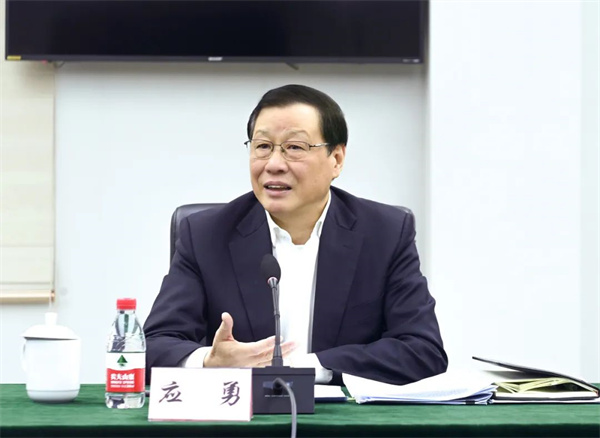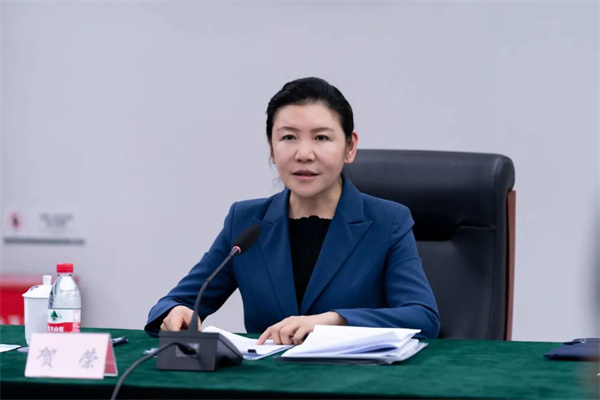Four-party consultation mechanism established to advance rule of law

On Jan 24, the Supreme People's Court (SPC), the Supreme People's Procuratorate (SPP), the Ministry of Justice (MOJ) and the All China Lawyers Association (ACLA) held the first work exchange and consultation conference, a concrete action to fully implement Xi Jinping Thought on the Rule of Law, the important instructions of General Secretary Xi Jinping on judicial, procuratorial and law enforcement work as well as the guiding principles of the 20th National Congress of the Communist Party of China (CPC) and the Second Plenary Session of the 20th CPC Central Committee.
The conference aims to establish a four-party consultation mechanism among people's courts, procuratorial and judicial organs and lawyers associations with a focus on key areas of common concern in lawyers' work, in a bid to strengthen cooperation, enhance effective interactions, and provide strong support and services for the advancement of Chinese modernization.
Chief Justice and President of the SPC Zhang Jun, Procurator-General of the SPP Ying Yong, and Minister of Justice He Rong attended and addressed the conference. Gao Zicheng, president of the ACLA, gave a briefing on the relevant work.

Zhang pointed out that the progress achieved by the people's courts is inseparable from the supervision and support of the legal supervisory and judicial administrative organs and of lawyers. He emphasized the importance of protecting the legitimate rights and interests of lawyers in accordance with the law, which, he said, means safeguarding the legitimate rights and interests of the parties involved and putting the people-centered principle into practice.
People's courts will join hands with all parties to give full play to the consultation mechanism and ensure the implementation of its results, to form a strong joint force to promote overall law-based governance, he added.
Zhang also noted that the SPC will further strengthen its adjudication work in terms of institutions and mechanisms, fulfill its oversight function to courts at lower levels and improve the quality and efficiency of judicial adjudications. Courts nationwide will respect and protect the right of lawyers to participate in litigation activities, unblock channels for lawyers to safeguard their rights, and support them in exercising their rights in accordance with the law, he added.
People's courts will continue to facilitate the participation of lawyers in market-oriented mediation in order for them to play a bigger role in litigation-source governance, Zhang said. They will also continue to foster professional personnel, implement relevant employment restrictions on departing personnel, build an open and transparent communication platform, explore joint training, and carry out effective interactions, Zhang said.

Ying said that the consultation mechanism is an innovative and pragmatic practice to deepen cooperation among the four parties and promote judicial fairness, and that the four parties are important forces in building overall law-based governance under the leadership of the CPC. Despite having different functions, they share the common goal of "making people feel fairness and justice is served in every judicial case" and building a modern socialist country in all respects under the rule of law, he said. Noting that pursuing law-based governance in all respects is their shared mission, he urged all four parties to join hands in the new era and form a joint force in advancing the rule of law.
The SPP will coordinate with all attending parties to fully perform the function of legal supervision, safeguard and promote lawyers' lawful practice, advance the pilot program of ensuring lawyer defense throughout the case review, prosecution and adjudication stages, and continuously build a close and clean relationship between procurators and lawyers, in order to jointly advance the implementation of Xi Jinping Thought on the Rule of Law, he added.

He Rong acknowledged the importance of the four-party consultation mechanism in advancing China's rule of law and showcasing confidence in its law-based governance. She underlined the significance of lawyers in the advancement of Chinese modernization and promoting overall law-based governance and called for fostering a favorable social atmosphere for respecting lawyers.
The MOJ will guide lawyers to adopt a people-centered approach in legal practice and improve the quality and efficiency of their services, so that the people can feel fairness and justice, she said.
It will take measures to secure lawyers' practicing rights, create favorable conditions and environment for their lawful practice, strictly regulate the practice of lawyers, resolutely rectify illegal behaviors such as malicious hype, and enforce industrial discipline, according to the justice minister. It will also innovate lawyers' ways of engagement in commercial mediation, injecting more professional strength into the diversified dispute resolution, she added.
She also called for fully leveraging the role of the four-party consultation mechanism in fostering stronger legal synergy for promoting Chinese modernization and maintaining social fairness and justice.







